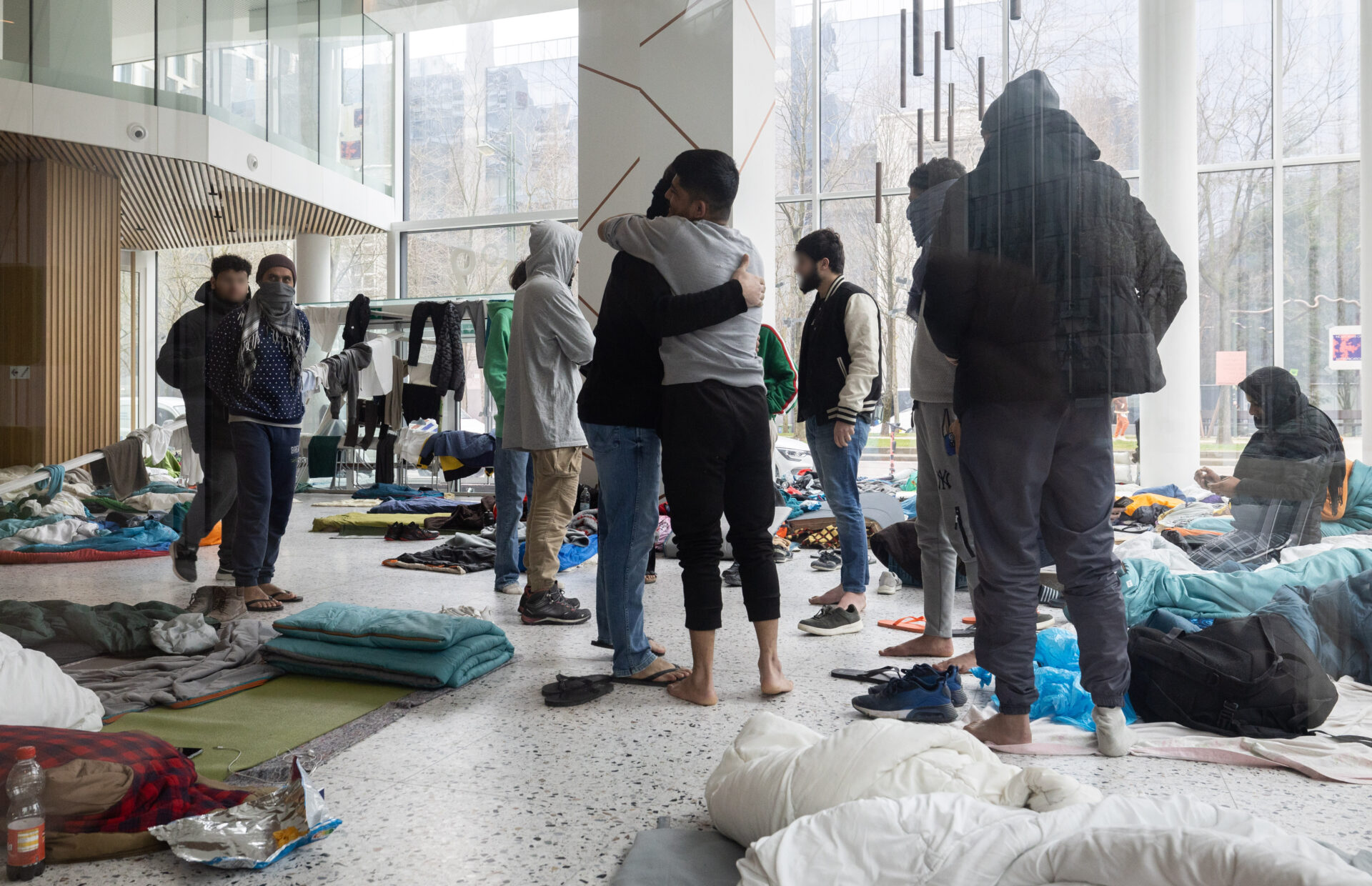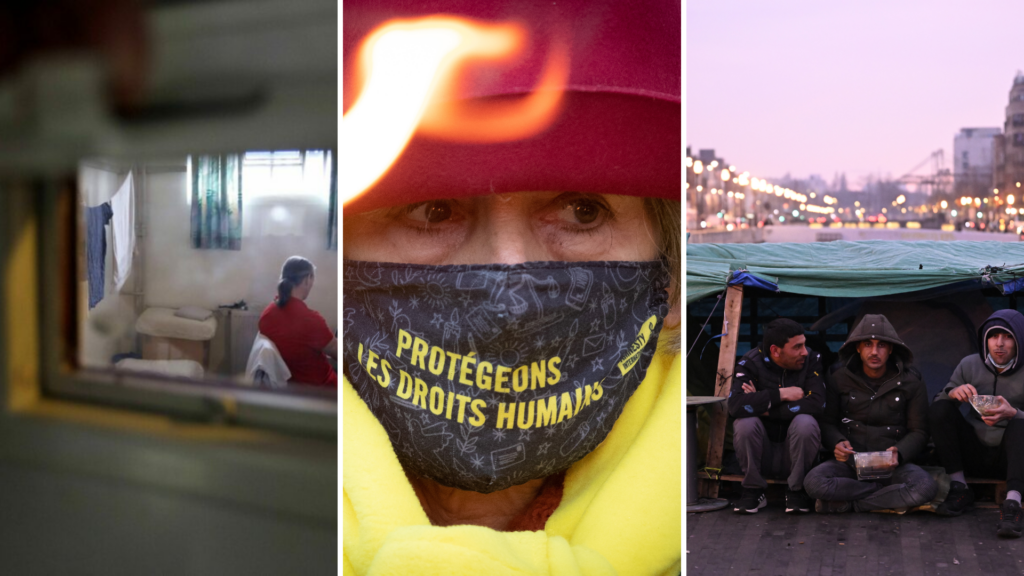Belgium has been reprimanded in Amnesty International's annual "State of the World's Human Rights" report for failing asylum seekers and prisoners in the country.
The NGO published its annual 'State of the World's Human Rights' report on Wednesday, which covers 155 countries and how leaders and institutions here deny human rights. Belgium is among the countries assessed, with Amnesty highlighting the reception crisis of asylum seekers.
"The reception crisis, created by our government itself, has been going on for two and a half years now," said Wies De Graeve, director of Amnesty International Flanders. The report does note that the government partially increased the capacity of its reception system but stressed that authorities still left thousands of asylum seekers homeless and destitute by denying them access to accommodation.

Some 70 asylum seekers sheltered in the soon-to-be National Crisis Centre. Credit: Belga/ Benoit Doppagne
"The crisis is forcing thousands of people to survive on the streets for months at a time, a situation that seriously affects their dignity and their human rights."
Even after thousands of convictions, including by the state’s highest administrative court and the European Court of Human Rights, Belgium is not taking steps to solve the crisis by adding more shelter places or launching the dispersal plan.
Amnesty also lamented the fact the Commissioner General for Refugees and Stateless People continued to deny international protection to the majority of Afghan asylum seekers, with only 35% obtaining protection, even though most Afghans are unable to return to Afghanistan. Failed asylum seekers are also vulnerable to abuse.
Prisons, arms and discrimination
The organisation also highlighted the "disastrous situation" in the country's prisons due to the overcrowding and degradation of the buildings. "This has disastrous consequences for the human rights of detainees, such as insufficient access to basic services – especially medical care and sanitation."
Prisons in Belgium have for years been among the most overcrowded in Europe, resulting in inmates sleeping on the floor and staff overworked and unable to carry out the necessary tasks to reduce recidivism. Recently, a prisoner was beaten for several days consecutively – an incident which unions attributed to overcrowding and staff shortages.
"Both the reception crisis and the dire situation in prisons are the responsibility of our authorities and the result of political choices. It is all the more painful that these choices are made at the expense of people who may have little electoral interest, but who have the same rights as all people."
It also criticised the arrest of 14 Greenpeace activists who protested against fossil fuel investments at the port of Zeebrugge and Wallonia's arms transfers to states "where they could be used to commit or facilitate serious violations of international human rights and humanitarian law", such as to Brazilian police and Nigerian and Indonesian military forces.
Related News
- 'Temporary' stopgap for reception crisis marks two years since launch
- Belgian politicians urged again to better protect vulnerable undocumented migrants
Amnesty did welcome the new "professional profiling framework of action", a measure to address and stop ethnic profiling by the police and the withdrawal of a proposal for a far-reaching protest ban that would have allowed judges to impose a temporary general prohibition on participation in public assemblies.
Globally, Amnesty warned that "against the backdrop of a growing number of conflicts, the actions of many powerful states have further eroded and undermined the credibility of the international legal order established after 1945". It criticised the international community's failure to prevent the deaths of thousands of civilians in the occupied Gaza Strip and the continued Russian war on Ukraine.
It called for urgent action to revitalise international institutions designed to protect humanity and warned that major developments in artificial intelligence (AI) threaten to accelerate the breakdown of the rule of law. "This is a huge threat to human rights. Regulation around AI is therefore essential."

